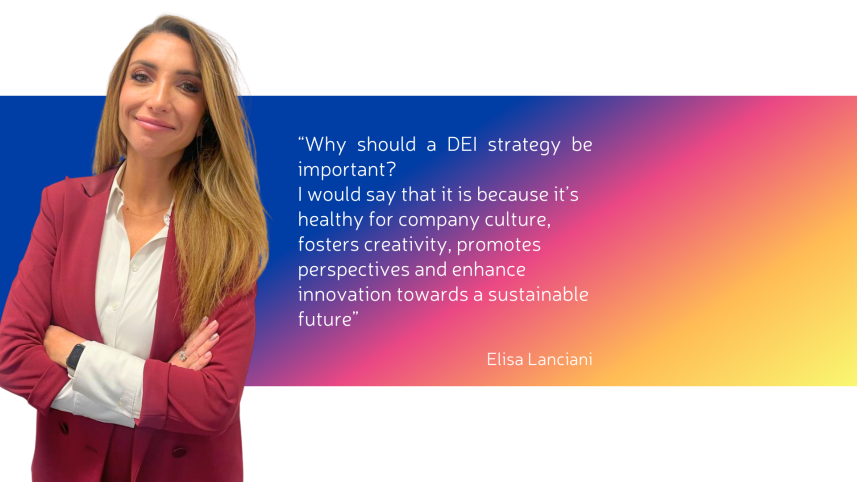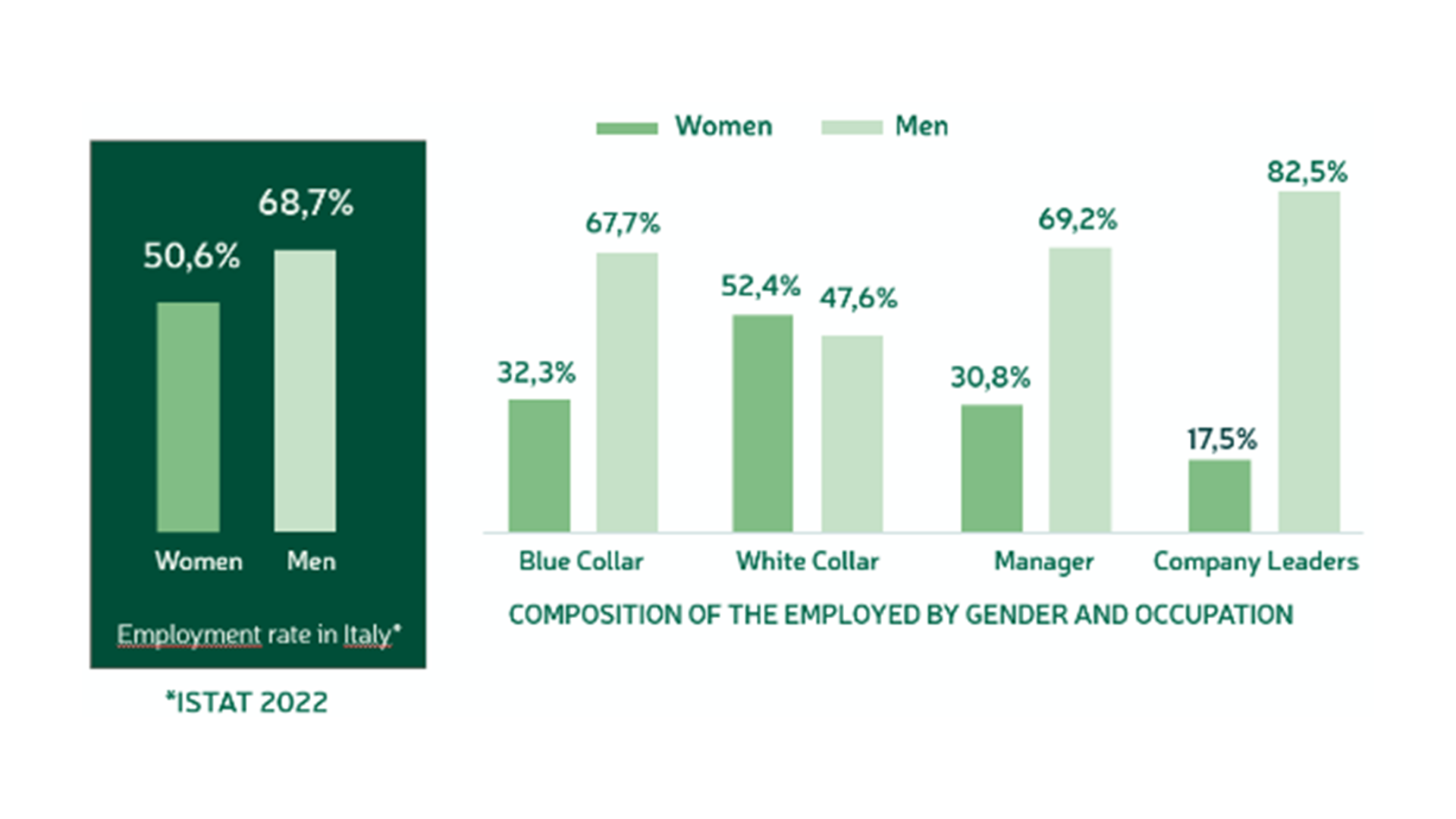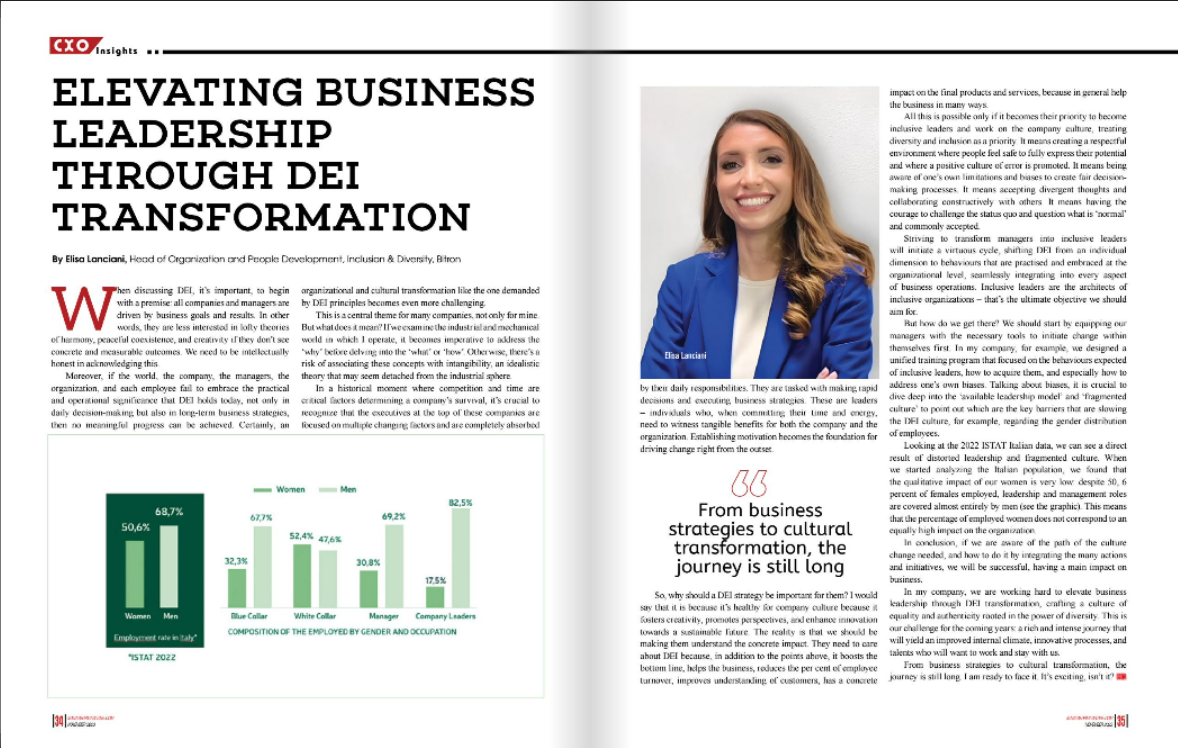
Elisa Lanciani awarded as TOP Leader in HR Industry 2023
Elisa Lanciani, Head of Organization, People and Culture at Bitron, has been awarded as TOP Leader in HR Industry 2023 by Manage HR Europe Magazine.
Read her article for Manage HR Europe Magazine below.
Elevating Business Leadership through DEI Transformation
When discussing DEI, it's important, to begin with a premise: all companies and managers are driven by business goals and results. In other words, they are less interested in lofty theories of harmony, peaceful coexistence, and creativity if they don't see concrete and measurable outcomes. We need to be intellectually honest in acknowledging this.
Moreover, if the world, the company, the managers, the organization, and each employee fail to embrace the practical and operational significance that DEI holds today, not only in daily decision-making but also in long-term business strategies, then no meaningful progress can be achieved. Certainly, an organizational and cultural transformation like the one demanded by DEI principles becomes even more challenging.
This is a central theme for many companies, not only for mine. But what does it mean? If we examine the industrial and mechanical world in which I operate, it becomes imperative to address the 'why' before delving into the 'what' or 'how'. Otherwise, there's a risk of associating these concepts with intangibility, an idealistic theory that may seem detached from the industrial sphere.
In a historical moment where competition and time are critical factors determining a company's survival, it's crucial to recognize that the executives at the top of these companies are focused on multiple changing factors and are completely absorbed by their daily responsibilities. They are tasked with making rapid decisions and executing business strategies. These are leaders – individuals who, when committing their time and energy, need to witness tangible benefits for both the company and the organization. Establishing motivation becomes the foundation for driving change right from the outset.
So, why should a DEI strategy be important for them? I would say that it is because it’s healthy for company culture because it fosters creativity, promotes perspectives, and enhance innovation towards a sustainable future. The reality is that we should be making them understand the concrete impact. They need to care about DEI because, in addition to the points above, it boosts the bottom line, helps the business, reduces the per cent of employee turnover, improves understanding of customers, has a concrete impact on the final products and services, because in general help the business in many ways.
All this is possible only if it becomes their priority to become inclusive leaders and work on the company culture, treating diversity and inclusion as a priority. It means creating a respectful environment where people feel safe to fully express their potential and where a positive culture of error is promoted. It means being aware of one's own limitations and biases to create fair decision-making processes. It means accepting divergent thoughts and collaborating constructively with others. It means having the courage to challenge the status quo and question what is 'normal' and commonly accepted.
Striving to transform managers into inclusive leaders will initiate a virtuous cycle, shifting DEI from an individual dimension to behaviours that are practised and embraced at the organizational level, seamlessly integrating into every aspect of business operations. Inclusive leaders are the architects of inclusive organizations – that's the ultimate objective we should aim for.
But how do we get there? We should start by equipping our managers with the necessary tools to initiate change within themselves first. In my company, for example, we designed a unified training program that focused on the behaviours expected of inclusive leaders, how to acquire them, and especially how to address one's own biases. Talking about biases, it is crucial to dive deep into the ‘available leadership model’ and ‘fragmented culture’ to point out which are the key barriers that are slowing the DEI culture, for example, regarding the gender distribution of employees.
Looking at the 2022 ISTAT Italian data, we can see a direct result of distorted leadership and fragmented culture. When we started analyzing the Italian population, we found that the qualitative impact of our women is very low: despite 50, 6 percent of females employed, leadership and management roles are covered almost entirely by men (see the graphic). This means that the percentage of employed women does not correspond to an equally high impact on the organization.
In conclusion, if we are aware of the path of the culture change needed, and how to do it by integrating the many actions and initiatives, we will be successful, having a main impact on business.
In my company, we are working hard to elevate business leadership through DEI transformation, crafting a culture of equality and authenticity rooted in the power of diversity. This is our challenge for the coming years: a rich and intense journey that will yield an improved internal climate, innovative processes, and talents who will want to work and stay with us.
From business strategies to cultural transformation, the journey is still long. I am ready to face it. It's exciting, isn't it?

